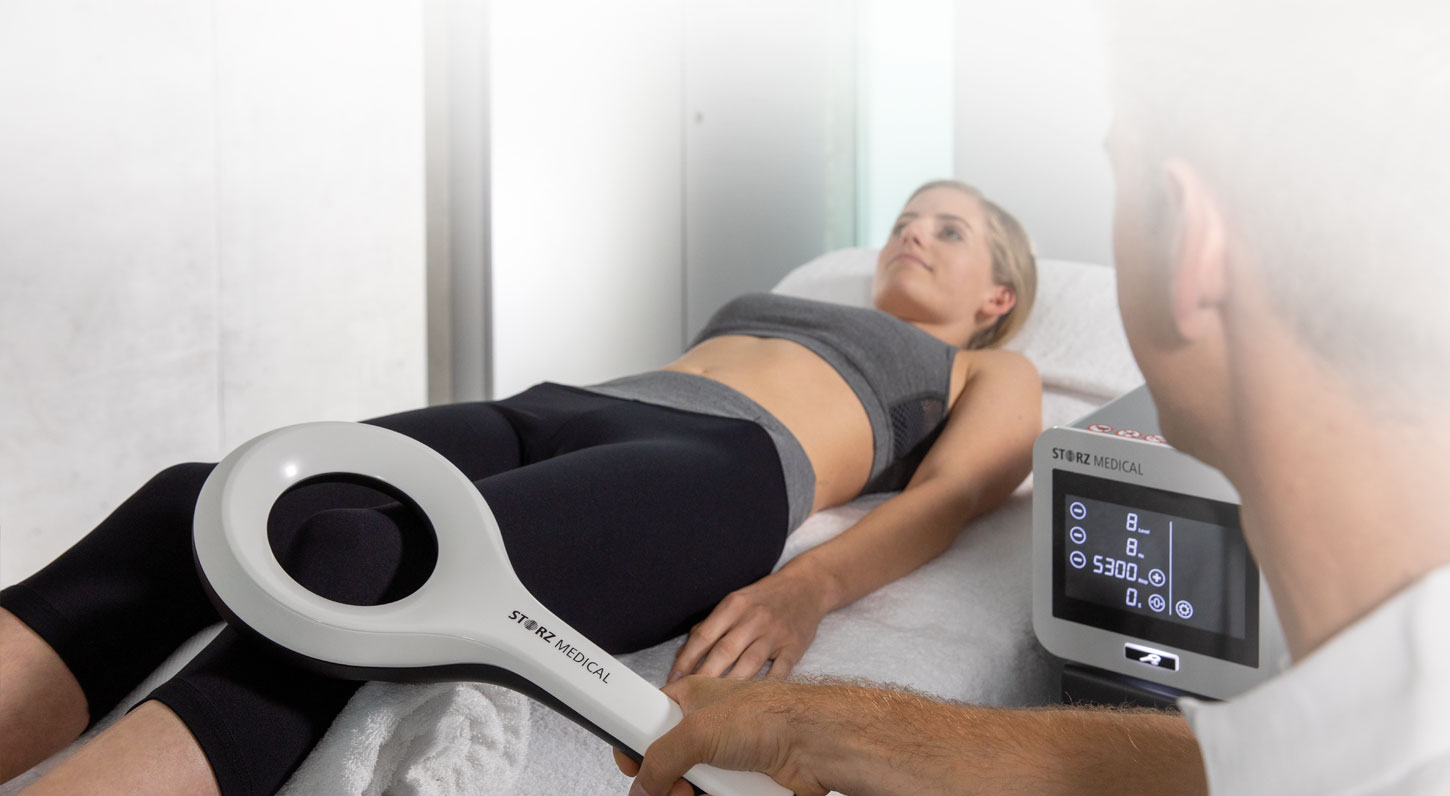New study: Extracorporeal Magnetotransduction Therapy (EMTT) effective for shoulder joint enthesiopathies
At this year's congress of the Society for Orthopaedic Traumatological Sports Medicine (GOTS) in Luxembourg, in the »Best Presentation« abstract session, the German orthopaedics and trauma surgeon, Prof. Ludger Gerdesmeyer presented new results from a prospective, randomized and placebo-controlled double-blinded study on Extracorporeal Magnetotransduction Therapy (EMTT).¹ These results show that EMTT is an effective therapy option in the treatment of shoulder joint enthesiopathies.
This study included 43 patients who had been suffering from significant shoulder pain for longer than 12 weeks due to various tendinopathies and tendon insertion diseases that had not responded to conservative treatment. They were divided into two groups, one receiving EMTT and the other »placebo treatment«.
The patients received treatment on eight occasions within three weeks. At the end of the trial, a change in pain and health-related quality of life is to be measured and assessed using scales that reflect these parameters. These measurements took place at week 6 and 12 following the last treatment in order to register medium and longer-term success.
The results from the two groups – which hardly differed from each other at the start – showed clinically relevant differences in favour of the EMTT group after the defined 6 and 12 weeks. In this case, »clinically relevant« was defined as a reduction of at least 50% in pain and an improvement in health-related quality of life by more than half.
The authors of the study therefore concluded that EMTT is an effective, non-invasive and non-pharmacological treatment option in patients with degenerative joint diseases and enthesiopathies.
1) L. Gerdesmeyer, K. Knobloch, H. Gollwitzer, M. Ringeisen, Prospective double blinded placebo controlled trial of high energetic magneto transduction therapy in shoulder joint enthesiopathies, Sports Orthopaedics and Traumatology, Volume 39, Issue 2, 2023, Page 212, ISSN 0949-328X, https://doi.org/10.1016/j.orthtr.2023.03.045




